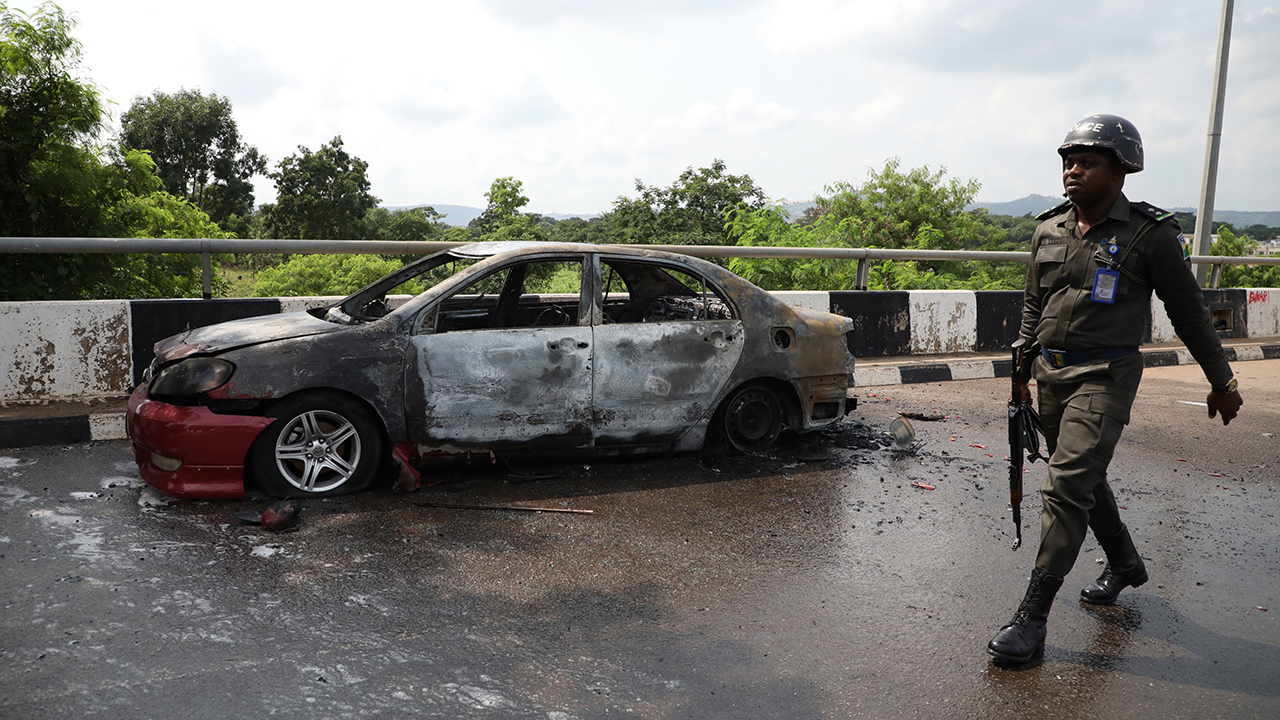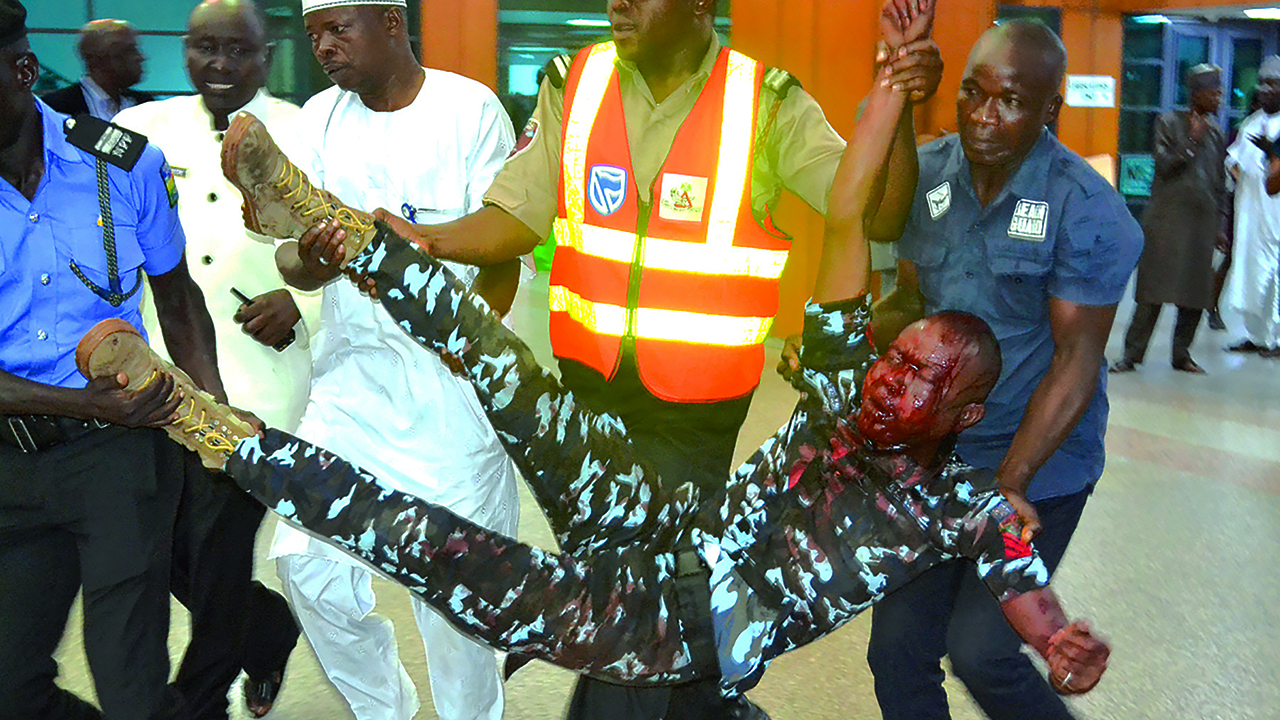
Some members of the Islamic Movement of Nigeria (IMN) again clashed with security agencies yesterday over the continued detention of their leader, Ibrahim El-Zakzaky.
The Shiites leader has remained incarcerated despite several court rulings ordering the President Muhammadu Buhari-led administration to release him.
Hundreds of the sect members stormed the National Assembly complex in Abuja at about 1:00 p.m. and engaged security operatives in a fierce confrontation.
Having overpowered the personnel at the first gate, the protesters marched to the second gate in a bloody climax that claimed the life of a policeman and two sect members.
Some of the protesters allegedly snatched a gun from a policeman and opened fire. Security men were also said to have shot at the protesters.
Images have emerged of a bloodied youth being rushed away from the scene. Also, a young lady said to have been shot in the chest, was seen writhing in pain.
[related ids=”967669″]
Members of the sect have reportedly vowed the protest will continue today, and until their leader is freed.
The police issued a statement saying they foiled an attempt by IMN members to invade the legislative complex. The Spokesman of the FCT command, DSP Anjuguri Manzah, said the group, which initially veiled the march as a peaceful protest, became violent and tried to force its way into the complex. He said his men acted proactively, professionally, and deployed minimum force in dispersing the protesters.
Manzah said: “Forty members of the sect have been arrested in connection with the violent protest. An investigation is in progress. In view of the foregoing, the command wishes to state unequivocally that while it recognises and respects the right of citizens to peaceful procession, an attempt by any individual or group of persons to cause the breakdown of law and order will not be tolerated. Those arrested in the process will be dealt with in accordance with the appropriate law of the land.
“Members of the public are enjoined to go on with their lawful activities as normalcy has been restored and adequate security measures have been emplaced by the command to forestall any security breach.”
The protest might have been informed by the latest appeal by the sect on the health condition of its leader.
On Sunday, El-Zakzaky’s son, Mohammed, raised the alarm that there was a “deliberate attempt to assassinate my parents though deliberate negligence of their health.” He told reporters in Abuja: “The fact that they managed to survive this long is a miracle,” and appealed to the government to grant them access to medical treatment abroad.

A delegation of medical experts led by the Islamic Human Rights Commission (IHRC) had visited El-Zakzaky and his wife, Zeenah, on April 25, 2019 and conducted a medical investigation on the couple. It recommended the duo be released on medical and humanitarian grounds.
Both have been in detention since 2015, following a crackdown by the military on IMN members in Zaria, Kaduna State, which reportedly killed hundreds of Shiites.
The House of Representatives was forced to adjourn its sitting to today, with Speaker Femi Gbajabiamila citing security and other reasons for the action.
The motion for adjournment was moved by Ado Doguwa (APC, Kano) and was seconded by Minority Leader Ndudi Elumelu (PDP, Delta).
The News Agency of Nigeria reports that items on the Orders Paper of the day were not exhausted as at the time of the adjournment.
Briefing journalists, the spokesman of the Senate, Adedayo Adeneye, said the chamber would look into the issue and take a position. “The National Assembly is a public place. They can go through the right channel and come for a discussion. But they have to do it the right way. This is a matter we will look at,” he said.
Writing on the need to handle the group’s agitations with caution, The Economist in “Making A Militant” states: “The government’s response is starting to resemble its tactics against the Yan Tatsine and the forerunner to Boko Haram, which caused both groups to become more violent. ‘The state is going about this in the wrong way,’ says John Campbell, a former American ambassador to Nigeria. He fears the IMN will abandon non-violence.”
Also, one of the group’s spokesmen, Ibrahim Musa, was quoted as saying: “We don’t want to use violence. But if they keep being violent against us, I don’t know what will happen. Already, some members are saying enough is enough.”
Meanwhile, Bangladeshi Ambassador to Nigeria Md. Shameem Ahsan, has stated that no religion permits the killing of people as every faith preaches peace, love and tolerance.
While on a courtesy visit to The Guardian office in Abuja yesterday, the envoy said the Peoples’ Republic of Bangladesh with 80 per cent Muslim population has zero tolerance for extremism.
He stressed that the purpose of his visit was to foster a closer relationship and bring the people of the two countries together for mutual benefits.
High level of poverty and lack of education make people vulnerable to extremism, he said.
[ad unit=2]



